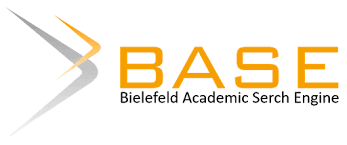PENERAPAN MODEL PEMBELAJARAN PROJECT BASED LEARNING DENGAN PENDEKATAN STEM DALAM MENINGKATKAN HASIL BELAJAR KIMIA PADA MATERI SENYAWA KARBON SISWA KELAS XII MIPA 2 SMA NEGERI 7 DENPASAR TAHUN PELAJARAN 2022/2023
DOI:
https://doi.org/10.5281/zenodo.7812422Keywords:
learning models, project based learning, STEM, learning outcomesAbstract
The purpose of this research is to improve students' learning outcomes in Chemistry by applying the Project Based Learning learning model with the STEM approach to students' Carbon Compounds material. The implementation of this class action research was carried out in class XII MIPA 2 SMA Negeri 7 Denpasar in semester 1. The subjects of this research were class XII MIPA 2 SMA Negeri 7 Denpasar in the academic year 2022/2023, a total of 44. The object of research is the application of the Project Based Learning learning model with the STEM approach, and learning outcomes. In this study two cycles were used through four stages of the activity process which included: planning, action, observation, and evaluation & reflection. The results showed that in the initial reflection the average student learning outcomes was 70.93. In cycle I, 19 students completed and 25 students incomplete, with an average student learning outcome of 72.95 and a percentage of student activity of 42.04% which is quite active. In cycle II as many as 44 people have completed, with an average student learning outcome of 81.36 and a percentage of student activity of 60.51% which is classified as active. Thus the application of the Project Based Learning learning model with the STEM (Science, Technology, Engineering, and Mathematics) approach to carbon compounds material can improve chemistry learning outcomes for class XII MIPA 2 students at SMA Negeri 7 Denpasar in the academic year 2022/2023.
Downloads
References
Annisa’ Rofifah Warohidah, A. B. K. (2019). Perkembangan Era Revolusi Industri 4.0 Dalam Pembelajaran Matematika. Prosiding Sendika, 5(1), 109. http://eproceedings.umpwr.ac.id/index.php/sendika/article/view/647/555
Ardianti, S., Sulisworo, D., Pramudya, Y., & Raharjo, W. (2020). The impact of the use of STEM education approach on the blended learning to improve student’s critical thinking skills. Universal Journal of Educational Research, 8(3 B), 24–32. https://doi.org/10.13189/ujer.2020.081503
Artisa Indariani, Surya Amami Pramuditya, S. F. (2018). Pengembangan Bahan Ajar Digital Berbasis Kemampuan Pemecahan Masalah Matematis Pada Pembelajaran Matematika. Eduma : Mathematics Education Learning and Teaching, 7(2), 89–98. https://doi.org/10.24235/eduma.v7i2.3670
Gustiani, I., Widodo, A., & Suwarma, I. R. (2017). Development and validation of science, technology, engineering and mathematics (STEM) based instructional material. AIP Conference Proceedings, 1848(May). https://doi.org/10.1063/1.4983969
Harmianto. Sri dkk. 2012. Model-model Pembelajaran Inovatif. Bandung: Alfabeta.
Herlina, 2020. Penerapan Problem Based Learning Untuk Meningkatkan Hasil Belajar Kimia Pada Materi Hidrokarbon,
Kd Manik Suriti, 2020. Penerapan Model Pembelajaran Berbasis STEM Dalam Upaya Meningkatkan Hasil Belajar Kimia Siswa Kelas XI MIPA 4 SMA Negeri 7 Denpasar Tahun Pelajaran 2019/2020
Khaeruddin, K., & Bancong, H. (2022). STEM education through PhET simulations: An effort to enhance students’ critical thinking skills. Jurnal Ilmiah Pendidikan Fisika Al-Biruni, 11(1), 35–45. https://doi.org/10.24042/jipfalbiruni.v11i1.10998
Meishanti, O. P. Y., & Maknun, M. J. (2021). Pengembangan E-Modul Berbasis Stem (Science Technologi Engineering and Mathematic) Materi Sistem Pernapasan. Eduscope, 7(1), 44–48.
Milaturrahmah, N., Mardiyana, M., & Pramudya, I. (2017). Mathematics Learning Process with Science, Technology, Engineering, Mathematics (STEM) Approach in Indonesia. Journal of Physics: Conference Series, 895(1). https://doi.org/10.1088/1742-6596/895/1/012030
Mulyasari, P. J., & Sholikhah, N. (2021). Pengembangan E-Modul Berbasis STEM untuk Meningkatan Kemandirian Belajar dalam Pembelajaran Jarak Jauh pada Mata Pelajaran Ekonomi. Edukatif : Jurnal Ilmu Pendidikan, 3(4), 2220–2236. https://doi.org/10.31004/edukatif.v3i4.1158
Sanjaya Wina. 2011. Penelitian Tindakan Kelas. Jakarta : Kencana Prenada Media Group.
Sulaeman, N. F., Triwulandari, S., & Syam, M. (2022). Development of Stem-Based Teaching Materials With Engineering Design Process Model on Global Warming: Validity Aspect. Jurnal Pembelajaran Fisika, 11(2), 69. https://doi.org/10.19184/jpf.v11i2.31534
Widayanti, Abdurrahman, A., & Suyatna, A. (2019). Future Physics Learning Materials Based on STEM Education: Analysis of Teachers and Students Perceptions. Journal of Physics: Conference Series, 1155(1). https://doi.org/10.1088/1742-6596/1155/1/012021
Yuanita, Y., & Kurnia, F. (2019). Pengembangan Bahan Ajar Berbasis Stem (Science, Technology, Engineering, and Mathematics) Materi Kelistrikan Untuk Sekolah Dasar. Profesi Pendidikan Dasar, 1(2), 199–210. https://doi.org/10.23917/ppd.v1i2.9046
Yusuf, I., & Widyaningsih, S. W. (2018). HOTS profile of physics education students in STEM-based classes using PhET media. Journal of Physics: Conference Series, 1157(3). https://doi.org/10.1088/1742-6596/1157/3/032021
Downloads
Published
How to Cite
Issue
Section
License
Copyright (c) 2023 LPPPM Universitas PGRI Mahadewa Indonesia

This work is licensed under a Creative Commons Attribution-NonCommercial-ShareAlike 4.0 International License.
Hak cipta mencakup hak eksklusif untuk mereproduksi dan mengirimkan artikel ini dalam semua bentuk dan media, termasuk mencetak ulang, memotret, mikrofilm dan reproduksi serupa lainnya, serta terjemahannya. Reproduksi dari bagian manapun dari jurnal ini, penyimpanannya di database dan transmisinya dengan bentuk atau media apa pun, seperti salinan elektronik, elektrostatik dan mekanis, fotokopi, rekaman, media magnetik, dan lain-lain, akan diizinkan hanya dengan izin tertulis dari penerbit jurnal.






1_(1).jpg)











